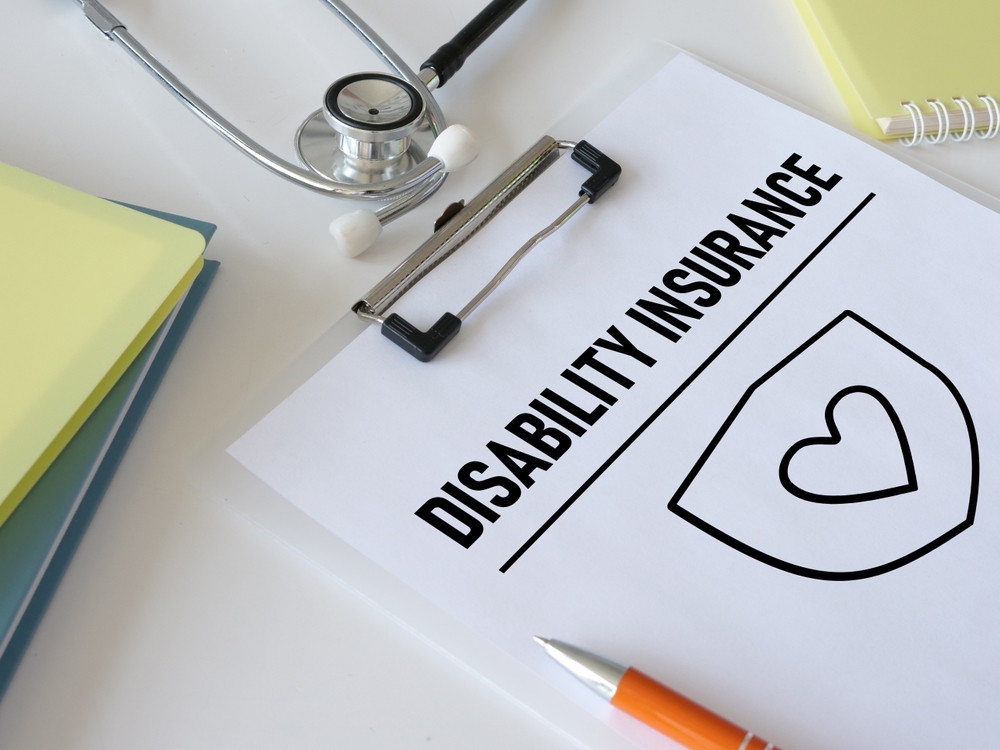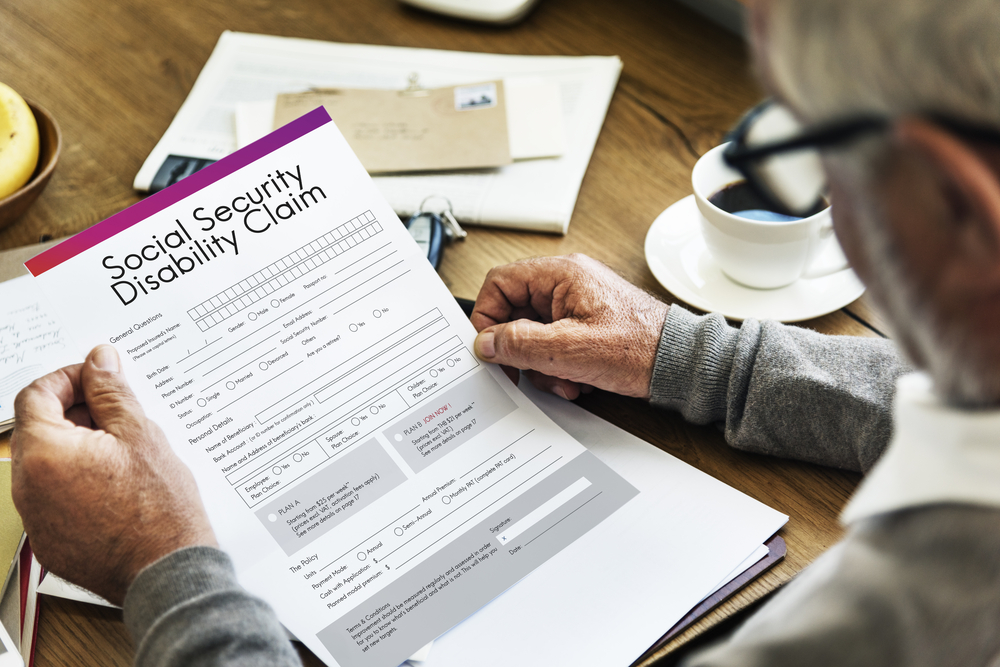As you near retirement age, you may wonder what options are available to you if you become disabled. Retirement should be a time to relax and enjoy the fruits of your labor, but life doesn't always go according to plan. Some disabilities can happen as you near retirement age, making it difficult or impossible to continue working. In these situations, seeking disability benefits becomes crucial.
Below, we will explore the topic of applying for Social Security disability after retirement and discuss your options for financial support when you are disabled and retired. If you find yourself in this situation or with any disability-related concerns, an experienced disability lawyer can listen to your story and identify possible avenues for relief and financial support.
Some Disabilities Happen as You Near Retirement Age
As you approach retirement age, your body may start to experience certain disabilities that can impact your daily life and financial stability. Understanding these common conditions and how they can affect your ability to work and earn a living is important. It is also beneficial to consult with a disability attorney to navigate the process of obtaining disability benefits.

- Arthritis: As you age, the wear and tear on your joints can lead to arthritis, causing pain, stiffness, and limited mobility. Arthritis can make it challenging to perform physical tasks and can significantly affect your ability to work. An attorney can determine whether you qualify for disability benefits due to arthritis and guide you through the application process.
- Vision Impairment: Age-related macular degeneration, cataracts, and other vision-related conditions become more common as you get older. These impairments can make it difficult to perform tasks that require clear vision, such as reading, driving, and using a computer. If your vision impairment prevents you from working and earning a living, an attorney can pursue the disability benefits you deserve.
- Hearing Loss: Age-related hearing loss, known as presbycusis, is another common disability affecting your work ability. Difficulty hearing and communicating can create challenges in various job settings and significantly impact your earning potential. An attorney can determine if you qualify for disability benefits due to hearing loss and guide you through the application process.
- Cardiovascular Conditions: As you age, the risk of developing cardiovascular conditions such as heart disease and high blood pressure increases. These conditions can have a significant effect on your ability to perform physical tasks and may require medical treatments or restrictions that prevent you from working. An attorney will understand the eligibility criteria for disability benefits related to cardiovascular conditions.
- Respiratory Disorders: Chronic obstructive pulmonary disease (COPD), asthma, and other respiratory disorders can become more prevalent as you near retirement age. These conditions can affect your lung function and make breathing difficult, limiting your ability to engage in physical activities required for certain jobs. An attorney can evaluate your eligibility for disability benefits due to respiratory disorders and guide you through the application process.
- Mental Health Conditions: Mental health conditions such as depression, anxiety, and dementia can have a significant impact on your overall well-being and ability to work. These conditions may require ongoing treatment and can make it challenging to concentrate, make decisions, and perform the tasks necessary for employment. An attorney can identify if you qualify for disability benefits due to mental health conditions and navigate the application process.
By consulting with an attorney experienced in disability benefits, you can ensure that you have a thorough understanding of the eligibility requirements and increase your chances of obtaining the financial support you need. These professionals can guide you through the application process, gather the necessary medical evidence, and advocate for your rights. Don't hesitate to reach out for legal assistance if you find yourself struggling with a disability as you approach retirement age. Just because you are older does not make a disability any less devastating.
Seeking Disability Benefits if You Cannot Finish Your Working Years Due to a Medical Condition
If you are facing a medical condition that prevents you from completing your working years, seeking disability benefits can be a crucial step in ensuring financial stability and peace of mind. The Social Security Administration (SSA) and private disability insurance can provide the financial support you need to navigate the challenges of a disability. Here's what you need to know about these avenues for assistance.
Social Security Administration Disability Benefits
The SSA offers two types of disability benefits: Social Security Disability Insurance (SSDI) and Supplemental Security Income (SSI). To qualify for SSDI, you must have a medical condition that is expected to last for at least one year or result in death, and it must prevent you from performing substantial gainful activity. SSI, on the other hand, is based on financial need and is available to individuals with disabilities who have limited income and resources.
Applying for these benefits can be a complex and time-consuming process, with strict eligibility criteria and extensive documentation requirements. This is where the experience of a skilled disability attorney can make a significant difference. An attorney can explain the eligibility requirements, gather the necessary medical evidence, and navigate the application process to increase your chances of a successful claim.
Private Disability Insurance

Private disability insurance provides an additional layer of financial protection beyond what the SSA offers. This type of insurance is typically offered through employers but can also be purchased individually. Private disability insurance policies vary, but they generally provide income replacement if you become disabled and cannot work.
Employment-sponsored disability policies fall under ERISA, a federal law governing employment benefit plans. If you have this type of coverage, there are specific standards and procedures you must follow if you need to file a claim for benefits. Private coverage you purchased on your own outside of employment might be less legally complicated, but obtaining benefits can still be a struggle.
Always carefully review the terms and conditions of your private disability insurance policy to understand what is covered and the conditions for filing a claim. Some policies have a waiting period before benefits can be claimed, while others may require proof of total disability rather than partial disability. Consulting with a disability attorney can help ensure you fully understand your policy and receive the benefits you are entitled to.
Seeking disability benefits is not a straightforward process, and the guidance of an experienced attorney who knows disability law can benefit you immensely. They can assess your situation, provide personalized advice, and navigate the complex bureaucracy and legal requirements. By enlisting the assistance of an attorney, you can maximize your chances of a successful disability benefits claim and secure the financial support you need during this challenging time.
Remember, if a medical condition prevents you from finishing your working years, you don't have to face financial uncertainty alone. Contact experienced disability attorneys to schedule a consultation and discuss your disability benefits options. Let your lawyer be your knowledgeable guide on this journey toward financial stability and security.
What Happens to Your Private Disability Benefits When You Retire?
Many workers have private disability benefits through their employers or personal insurance policies. These benefits provide income replacement in the event of a disabling condition. However, it's important to understand what happens to these benefits when you retire.
In most cases, private disability benefits will cease once you reach retirement age. These benefits aim to support individuals who cannot work due to a disability but are not intended to be a long-term replacement for retirement income. Therefore, exploring other financial support options is crucial if you are disabled and retired.
Can You Apply for Social Security Disability After Retirement Age?
The simple answer is yes, you can apply for Social Security disability benefits after retirement. Social Security disability benefits are not tied to your age but rather to your ability to work due to a disability. If you have a debilitating condition that prevents you from engaging in substantial gainful activity, you may be eligible for disability benefits regardless of your age.
However, it's important to note that the process of applying for disability benefits after retirement age may be more challenging. The Social Security Administration may require you to prove that your disability began before you reached full retirement age. This can involve providing detailed medical records and establishing a clear timeline of your disability's onset. Working with a disability attorney can greatly simplify this process and increase your chances of a successful claim.
What are Your Options for Financial Support After Retirement When You are Disabled?
When you are disabled and retired, always explore all your options for financial support. Here are some key options to consider:
- Social Security disability benefits: As mentioned earlier, you can apply for Social Security disability benefits even after reaching retirement age. These benefits provide a monthly income to individuals who cannot work due to a significant disability.
- Supplemental Security Income (SSI): SSI benefits are available to disabled individuals with limited income and resources. These benefits can provide additional financial assistance to help cover living expenses.
- Retirement benefits: If you've reached the age of retirement and have paid into the Social Security system, you may be eligible for retirement benefits. These benefits, typically received as monthly payments, can provide essential income during your retirement years.
- Other public assistance programs: Depending on your circumstances and location, additional public assistance programs may be available to provide financial support. Programs such as Medicaid, housing assistance, and food assistance can help ease the financial burden of being disabled and retired.
No one should spend their retirement years worrying about how to cover bills and basic needs. The good news is that options often exist to seek financial support and allow you to relax in your retirement, enjoying your loved ones.
Always discuss your options with a disability attorney to understand your specific situation and determine the best course of action. They will analyze your case, explore all available options, and guide you toward the most appropriate financial support programs.
Consult a Disability Attorney Near You

When faced with a disability and the potential of seeking disability benefits, it can be overwhelming to navigate the complex legal system on your own. That's where a disability attorney can make a significant difference in your case.
Consultations with a disability attorney are often free, and they allow you to discuss the specifics of your disability and the challenges you are facing. During this initial meeting, the attorney will evaluate the merits of your case and provide you with valuable insights and advice on how to proceed.
What can you expect in a consultation with a disability attorney? First, you can anticipate a compassionate and understanding approach. These attorneys regularly work in disability law and are keenly aware of the struggles individuals with disabilities face in their daily lives. They genuinely care about helping you navigate the process and fighting for the benefits you deserve.
During the consultation, the attorney will gather critical information about your disability, its effects on your daily life, and any medical documentation you have to support your case. They will explain the eligibility criteria for disability benefits and assess whether you meet the necessary requirements.
Additionally, the attorney will outline the process of filing your claim, the potential challenges you may encounter, and the expected timelines. They will guide you through the preparation of your application, ensuring all necessary documents are included and accurately completed.
Remember, the sooner you consult with a disability attorney in your area, the better your chances of effectively navigating the complex disability benefits system. They will understand your rights, gather the necessary evidence, and advocate for your best interests.
Consultations with disability attorneys are free, so seeking legal advice will never add to your financial concerns. Instead of merely wondering about your options for ongoing financial support after retirement, schedule a meeting with a law firm in your area. They can assist with private disability claims and advice on other avenues for benefits. You do not have to determine how to cover your expenses alone.



